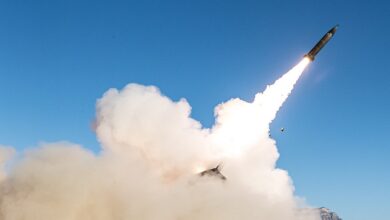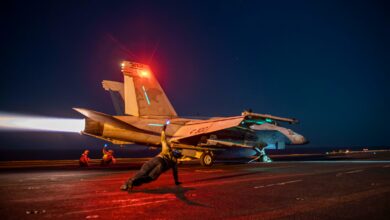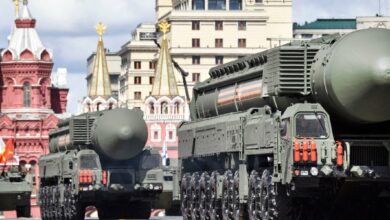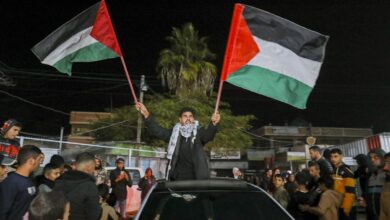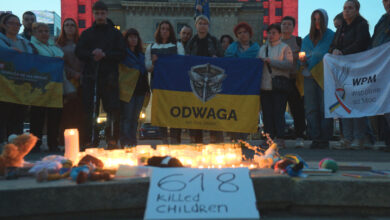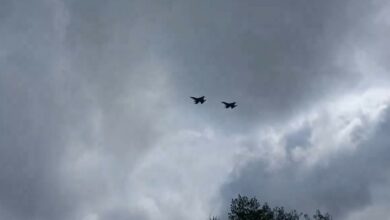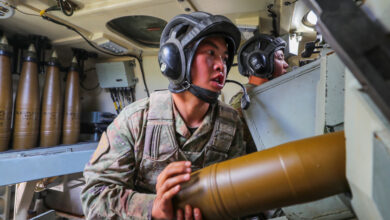Taiwan Says US Arms Sale Shows ‘Commitment to Defense’ Against China
Taiwan thanked the United States on Thursday for approving the sale of equipment and parts for F-16 fighter jets, saying it would help the island defend itself against China.
China claims Taiwan as part of its territory, and last month launched drills around the self-ruled island days after the inauguration of new President Lai Ching-te.
The United States, a close partner of Taipei, on Wednesday approved two military sales to Taiwan worth approximately $300 million in total, mostly of spare and repair parts for the island’s F-16 fighter jets.
The sales approvals were announced in two statements from the US Defense Security Cooperation Agency, set up to provide assistance to the United States’ allies and partners.
The United States switched diplomatic recognition from Taipei to Beijing in 1979 but it has remained Taiwan’s most important partner and biggest arms supplier, sparking repeated condemnations from China.
Taiwan’s defense ministry on Thursday expressed gratitude for the approval of the arms sale, which it expected to take effect in a month’s time.
It said the sale would help Taiwan “meet the needs of defence operations”, and added: “Military intimidation will not contribute to regional peace and we call on the Chinese Communist Party to stop all kinds of irrational behaviours against Taiwan.”
The foreign ministry also welcomed the sale, saying in a post on X that “it showcases an unwavering commitment to our defence… Our dedication to maintaining peace & stability persists amid #China’s escalating aggression.”
China has said it will never renounce the use of force to bring Taiwan under its control, and it maintains a near-daily military presence around the island — sending in fighter jets, drones, and naval vessels.
China launched massive military drills around Taiwan last month, just three days after Lai’s inauguration, during which he vowed to defend the island’s sovereignty and democracy.
China said the speech was akin to a “confession of Taiwan independence,” and described its war games as a “punishment.”



